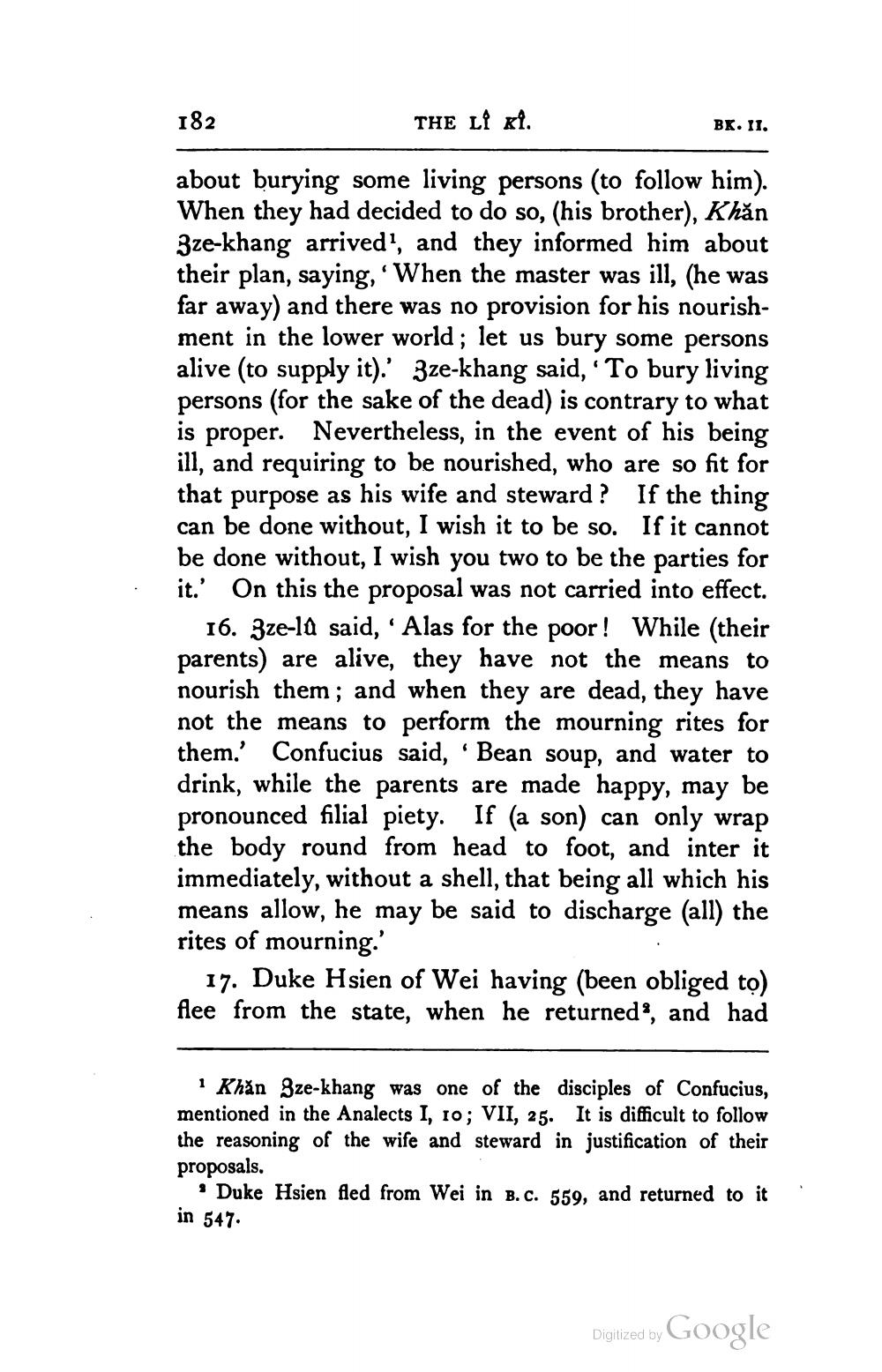________________
182
THE LI Kİ.
about burying some living persons (to follow him). When they had decided to do so, (his brother), Khăn 3ze-khang arrived', and they informed him about their plan, saying, 'When the master was ill, (he was far away) and there was no provision for his nourishment in the lower world; let us bury some persons alive (to supply it).' 3ze-khang said, 'To bury living persons (for the sake of the dead) is contrary to what is proper. Nevertheless, in the event of his being ill, and requiring to be nourished, who are so fit for that purpose as his wife and steward? If the thing can be done without, I wish it to be so. If it cannot be done without, I wish you two to be the parties for it.' On this the proposal was not carried into effect.
BK. II.
16. 3ze-lû said, 'Alas for the poor! While (their parents) are alive, they have not the means to nourish them; and when they are dead, they have not the means to perform the mourning rites for them.' Confucius said, 'Bean soup, and water to drink, while the parents are made happy, may be pronounced filial piety. If (a son) can only wrap the body round from head to foot, and inter it immediately, without a shell, that being all which his means allow, he may be said to discharge (all) the rites of mourning.'
17. Duke Hsien of Wei having (been obliged to) flee from the state, when he returned, and had
disciples of Confucius,
1 Khăn Sze-khang was one of the mentioned in the Analects I, 10; VII, 25. It is difficult to follow the reasoning of the wife and steward in justification of their proposals.
Duke Hsien fled from Wei in B. c. 559, and returned to it in 547.
Digitized by
Google




